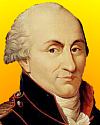
On 23 Aug 1806, a French physicist died, whose name (in the quiz below) should be known to any high school physics student. But beyond the work in electrostatics, for which he is best known, this scientist has been regarded as the pioneer of experimental science in France, as William Gilbert was in England. The fame of both rests principally on their electrical and magnetic researches.
In his early career, he served as a military engineer for the French army, in which capacity he spent time on the island of Martinique in the West Indies to assist in the construction of Fort Bourbon. He survived the fever that killed many of his comrades, but returned home with chronic health ailments.
In 1784, his work on the elasticity of wires led to developing the torsion balance, capable of measuring feeble forces, whch idea was used by Cavendish to determine the density of the earth.
At various times in his life, this scientist supervised Waters and Fountains in France, wrote a paper on “Statical Problems applied to Architecture,” and worked with the Commission on Weights and Measures.
He observed that the sap of poplar trees ascended near the centre of the trunk, and was mixed with air, which could be tapped by a bore-hole. Yes, this scientist was versatile and his interests ranged wider than the experiments with electricity and magnetism for which he remains best known.
If by now you are inclined to learn more of the background of this man, read an interesting chapter from Pioneers of Electricity; or, Short Lives of the Great Electricians (1890).

On 23 Aug 1888, Philip Henry Gosse died, an English naturalist and science writer who wrote books illustrating such topics as Jamaican wildlife and marine zoology. Stephen Jay Gould called Gosse the “David Attenborough of his day.” Today's book pick is: Glimpses of the Wonderful : The Life of Philip Henry Gosse, by Ann Thwaite, who provides a vivid look into the life of this renowned Victorian naturalist, author, illustrator and Christian fundamentalist. As both friend and antagonist of Charles Darwin, Gosse was at the very heart of the Victorian conflict between science and religion. The author of 40 books, Gosse also perfected and popularized the aquarium and traveled widely before settling in Devon as a self-trained entomologist, botanist, lepidopterist, ornithologist and above all, marine biologist. Ann Thwaite describes also the personal biography of the man deemed by the Royal Society to have done more than any before to popularize the study of natural history in England. The book itself is a beautiful production with many illustrations from Henry Gosse’s own forty books. It is regrettable that Gosse is today so obscure, but that can be remedied by anyone who reads this fine biography.
It is available from Amazon, typically about New from $160.71. Used from $21.50. (As of earlier time of writing - subject to change.)
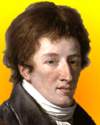 | The observer listens to nature: the experimenter questions and forces her to reveal herself. |
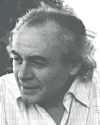 | Madness need not be all breakdown. It may also be break-through. It is potential liberation and renewal as well as enslavement and existential death. |
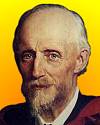 | [To] mechanical progress there is apparently no end: for as in the past so in the future, each step in any direction will remove limits and bring in past barriers which have till then blocked the way in other directions; and so what for the time may appear to be a visible or practical limit will turn out to be but a bend in the road. |
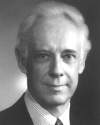 | Man's health and well-being depends upon, among many things, the proper functioning of the myriad proteins that participate in the intricate synergisms of living systems. |
| Before you look at today's web page, see if you can answer some of these questions about the events that happened on this day. Some of the names are very familiar. Others will likely stump you. Tickle your curiosity with these questions, then check your answers on today's web page. | |
| Births | |
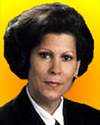 | On 23 Aug 1944, Antonia Novello was born, a Puerto Rican physician. She became notable both as the first woman and as the first Hispanic to hold a certain public office. In what position did Novello become a notable public official? |
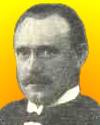 | William Henry Eccles, Osborne Reynolds and Georges Cuvier were each born on 23 Aug, though in different years. Not in the same order, they were notable for: established the sciences of comparative anatomy and paleontology; work in hydraulics and hydrodynamics; pioneered in the development of radio communication. Can you match each scientist to his claim to fame? |
| Deaths | |
 | A physicist (1736-1806) was best known for the formulation of his law, which states that the force between two electrical charges is proportional to the product of the charges and inversely proportional to the square of the distance between them. Can you name this man? |
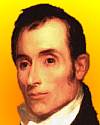 | Alexander Wilson (1766-1813) was a Scottish-American naturalist who left his homeland in 1794 at age 27. He settled in America, where by he was fascinated by the wildlife, and did pioneering work in a certain field of study. In what field of study did Alexander spend his great efforts? |
| Events | |
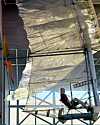 | On 23 Aug 1977, Bryan Allen won the Kremer Prize for the first human-powered flight as he pedalled a light aircraft for at least a mile at Schafter, California. What was the name of his aircraft? |
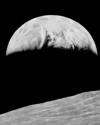 | On 23 Aug of a certain year, the Lunar Orbiter 1 took the first photograph of the Earth from the Moon. In what decade was this photograph taken? |
Fast answers for the previous newsletter for August 22: Dr. Denton Cooley = heart transplant; Denis Papin = pressure cooker; Paul Gottlieb Nipkow = TV scanning • Lodge's coherer = a radio-wave detector • phrenology = the attempt to divine individual intellect and personality from an examination of skull shape. • Neptune = its first complete ring • The Savannah = the world's first nuclear-powered ship • Fitch's steamboat = 3 mph.
 If you enjoy this newsletter, the website, or wish to offer encouragement or ideas, please send feedback by using your mail reader Reply button.
If you enjoy this newsletter, the website, or wish to offer encouragement or ideas, please send feedback by using your mail reader Reply button. Your click on a Facebook, StumbleUpon, or other social button on the site webpages is also a welcome sign of appreciation. Thank you for using them.
© This newsletter is copyright 2020 by todayinsci.com. Please respect the Webmaster's wishes and do not put copies online of the Newsletter — or any Today in Science History webpage. (If you already have done so, please remove them. Thank you.) Offline use in education is encouraged such as a printout on a bulletin board, or projected for classroom viewing. Online, descriptive links to our pages are welcomed, as these will provide a reader with the most recent revisions, additions and/or corrections of a webpage. For any other copyright questions, please contact the Webmaster by using your mail reader Reply button.
--
If you do not want to receive any more newsletters, Unsubscribe
To update your preferences and to unsubscribe visit this link
Executive Real Estate Business Class
-
"It was like a man with wings. It wasn't like anything you'd see on TV or in a monster movie." ...
About the publisher
Search This Blog
Blog Archive
-
▼
2021
(585)
-
▼
August
(32)
- Newsletter for Tuesday 31 August.
- Newsletter for Monday 30 August.
- Newsletter for Sunday 29 August.
- Newsletter for Saturday 28 August.
- Newsletter for Friday 27 August.
- Newsletter for Thursday 26 August.
- Newsletter for Wednesday 25 August.
- Newsletter for Tuesday 24 August.
- Newsletter for Monday 23 August.
- All-New Tonight: 'The Machines That Built America'
- Newsletter for Sunday 22 August.
- Newsletter for Saturday 21 August.
- Newsletter for Friday 20 August.
- Newsletter for Thursday 19 August.
- Newsletter for Wednesday 18 August.
- Newsletter for Tuesday 17 August.
- Newsletter for Monday 16 August.
- Newsletter for Sunday 15 August.
- Newsletter for Saturday 14 August.
- Newsletter for Friday 13 August.
- Newsletter for Wednesday 11 August.
- Newsletter for Tuesday 10 August.
- Newsletter for Monday 9 August.
- All-New Tonight 9/8c: Telephone Wars
- Newsletter for Sunday 8 August.
- Newsletter for Saturday 7 August.
- Newsletter for Friday 6 August.
- Newsletter for Thursday 5 August.
- Newsletter for Wednesday 4 August.
- Newsletter for Tuesday 3 August.
- Newsletter for Monday 2 August.
- Newsletter for Sunday 1 August.
-
▼
August
(32)
-
Blogroll
-
About
HistoryFact










0 comments:
Post a Comment